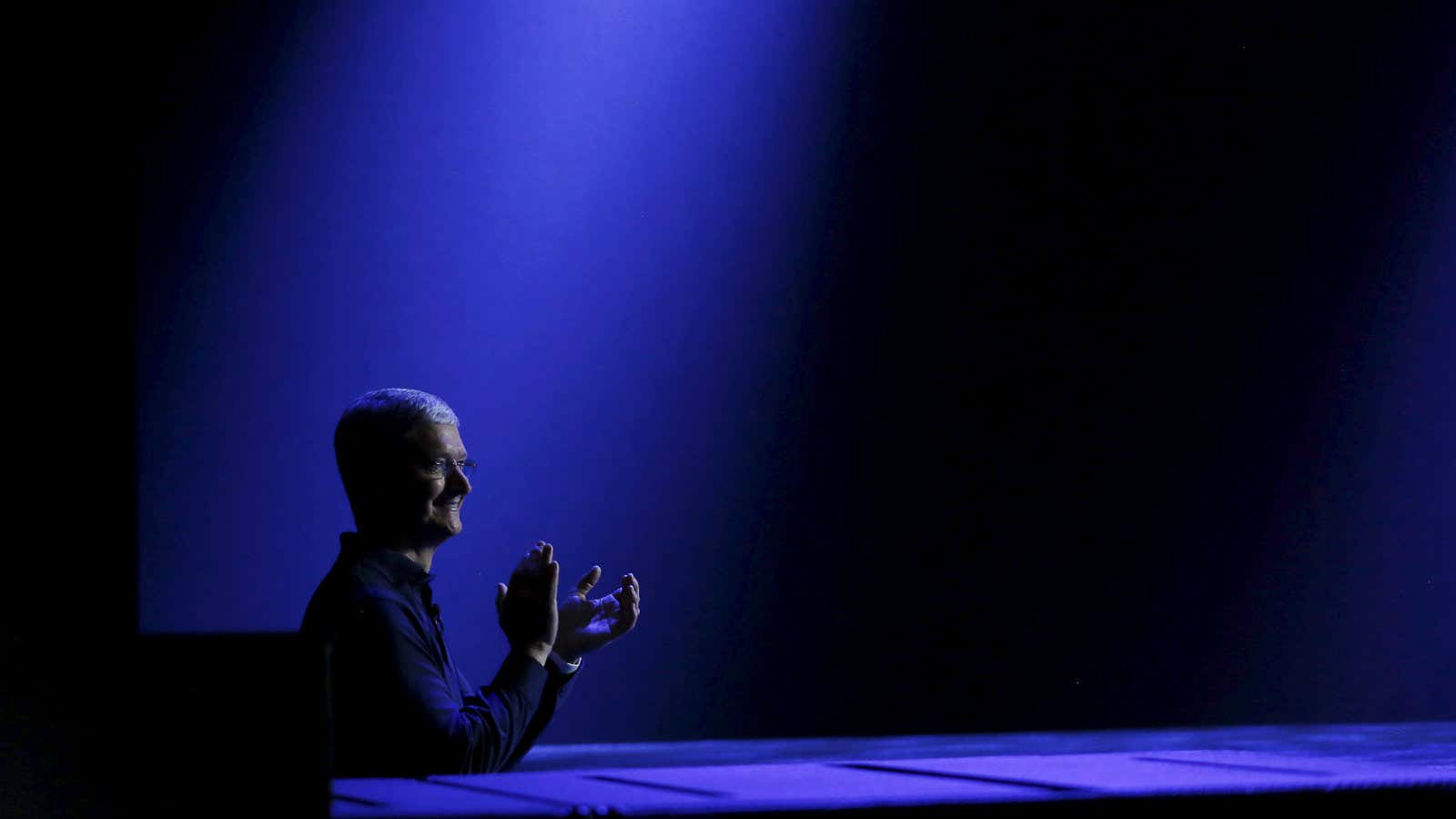Apple CEO Tim Cook kicked off his first official trip to India in the wee hours of May 18. His early morning call, however, was not to discuss business but seek divine blessings.
Cook visited the high-profile Siddhivinayak temple in Mumbai before dawn on Wednesday to offer prayers to the Hindu elephant-headed god, Ganesha. One of the most worshipped Hindu deities, Ganesha is widely revered as the remover of obstacles. Hindus pray to Ganesha before starting anything new as he is said to bring an auspicious start.
Divine blessings, particularly from Ganesha, are perhaps in order as Apple is trying to push its business in India amid several regulations restricting it. Ten years after the iPhone was launched in India, the Cupertino-headquartered company has not been able to open a direct store in the country because regulations require at least 30% of the goods in the store to be sourced locally.
Apple’s request to sell affordable, refurbished devices in India has also been rejected by the Indian government. On the first day of Cook’s visit, Apple announced plans to set up a design and development accelerator in Bengaluru, which will provide specialised support to iOS app developers in India.
The company is keeping details of Cook’s itinerary under wraps, but reports say that he is scheduled to meet prime minister Narendra Modi later this week.
Last month, Apple posted a 56% growth in quarterly revenue from India, while revenue from the company’s second-largest market, China, declined for the first time. India is touted as the next China for Apple. India currently accounts for less than 1% of Apple’s revenue and the company holds a very small share of the world’s second-largest smartphone market.
Apple CEOs and Indian spirituality go back a long way. The company’s co-founder and former CEO, Steve Jobs, had made a trip to India in 1970s—when he was still an employee at video game company Atari—in quest of higher learning.
Editor’s note: We’ve updated the headline of this post. While our readership is global, we understand that some Hindu readers found an earlier version offensive and we’ve changed it out of respect for them.
